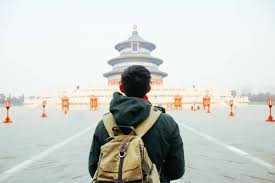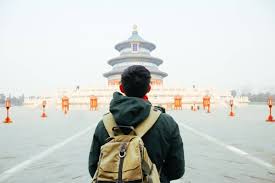
The United States recommends that American citizens think twice about traveling to China, due to arbitrary measures and the ban on departure, as well as the risk of illegal arrest.

Although no specific cases are cited, the recommendation was made after a 78-year-old American was sentenced to life in prison on espionage charges in May.
Likewise, last week China passed a Foreign Relations Law that provides for measures against those deemed to harm China’s interests.
China also recently passed a counter-espionage law that has rattled the foreign business community, whose offices are being raided, as well as another law to punish foreign critics.
“The government of the People’s Republic of China arbitrarily enforces domestic laws, including the removal ban on US and foreign nationals, without a fair and transparent process based on law,” the US guidance said.
“U.S. citizens traveling or residing in China may be arrested without being given access to U.S. consular services or information about the crime they are accused of,” the guidance states.
The State Department’s information states, among other things, that Chinese authorities “appear to also have expanded powers to designate as state secrets a wide range of documents, data, statistics, or materials, and to arrest and charge foreign citizens for espionage”.
Among the possible violations, the instruction includes e.g. participating in protests, sending e-mails criticizing Chinese policies, or even simply doing research in areas deemed important.
The ban on leaving the country can be used to compel individuals to cooperate with Chinese government investigations, pressure family members to return from other countries, settle disputes in favor of Chinese nationals, and to “influence other governments”, the US directive says.
Similar guidelines were issued for the semi-autonomous Chinese regions of Hong Kong and Macau. The instructions were dated Friday and sent to reporters on Monday.The United States has issued similar guidance for US citizens in the past, but over the past few years they have been more in the form of warnings about the risk of lockdowns from prolonged COVID measures, when China closed its borders for nearly three years based on its tough “zero-COVID” policy.
China has generally responded angrily to what it sees as moves by the United States to question its authoritarian system led by the Communist Party. China has issued travel guidelines for the United States, warning of the dangers of crime, discrimination against Asians and the high cost of emergency medical care.
China had no immediate reaction to the US guidance issued on Monday.Details of the espionage charges against John Shing-Wan Leung have not been released, due to China’s authoritarian political system and the ruling Communist Party’s absolute control over all legal matters. Mr Leung, who also has permanent residence in Hong Kong, was arrested in the southeastern city of Suzhou on April 15, 2021 – a period when China had closed its borders and imposed strict restrictions on internal population movements to control the spread. of COVID-19.
The travel warning comes as US-China relations are at their lowest point in years over trade, technology, Taiwan and human rights, although the two sides are taking some steps to improve the situation. US Secretary of State Antony Blinken made a long-delayed visit to Beijing last week, and Treasury Secretary Janet Yellen makes a long-awaited visit to Beijing this week. China also recently appointed a new ambassador to Washington, who presented his credentials during a meeting at the White House with President Joe Biden.
Other incidents have also highlighted the strained relationship. China formally protested last month after President Biden called Chinese leader Xi Jinping a “dictator,” just days after Secretary Blinken’s visit.
President Biden played down the protest, saying his remarks would not negatively affect US-China relations and that he still expects to meet with Mr Xi soon. President Biden has also drawn criticism from Beijing after openly declaring that the United States would defend self-ruled Taiwan in the event that China, which claims the island as its territory, attacked it.
President Biden said that his open statements about China “just aren’t something that would change him very much.”
The US administration is under bipartisan pressure to take a tougher line on China, making it one of the few issues on which Democrats and Republicans agree.
Along with several imprisoned Americans, two Sino-Australians, Cheng Lei, who worked for China’s state-run broadcasting network, and writer Yang Jun, have been held in prison since 2020 and 2019, respectively, with no announcement of their sentence.
Perhaps the most well-known case of arbitrary arrest was that of two Canadians, Michael Kovrig and Michael Spavor, who were arrested in China in 2018, shortly after Canada arrested Meng Wanzhou, the chief financial officer of the Chinese company Huwaei Technologies and also the daughter of the founder of to this company, based on an extradition request from the US authorities.
They were charged with national security-related offences, which were never explained, and released three years later after a plea bargain was reached in the United States on charges of financial fraud against Ms Meng. Many countries label China’s practices as “hostage policy”.



















